 Market Insights
Market Insights
 2025-05-15
2025-05-15
Automotive components come in a wide variety—from major systems like engines, transmissions, and body frames to smaller items such as bolts, nuts, sensors, and wires. The quality and performance of these parts directly impact the overall performance and reliability of a vehicle. Therefore, automakers and parts suppliers place great emphasis on R&D, manufacturing, and quality control.
1. Development of the Automotive Parts Industry & Import-Export Market Outlook in 2024
The automotive parts industry chain is composed of upstream raw material supply, midstream component manufacturing, and downstream vehicle assembly and aftermarket services. The quality and price of upstream materials directly affect the cost and quality of parts; midstream manufacturers must continuously improve processing technologies and quality control; downstream players must respond swiftly to market changes and offer efficient after-sales services.
According to statistics, the global automotive parts market was valued at approximately USD 1,879 billion in 2023, and is projected to reach USD 2,209 billion by 2030, with a compound annual growth rate (CAGR) of 2.3% from 2024 to 2030.
The rapid rise of new energy vehicles (NEVs) has created new growth opportunities for the parts sector. As NEV penetration increases, demand for batteries, motors, and electronic control systems continues to grow. Technologies focused on smart systems, lightweight design, energy efficiency, and environmental sustainability are becoming major development directions, offering new opportunities for automotive parts manufacturers.

2. Market Demand by Product Category
Driven by the rapid increase in car ownership across Europe and the widespread adoption of NEVs, there is also a growing consumer preference for personalized, comfortable, and safe vehicles—boosting demand for custom parts.
Different countries have varying demands and trends across categories:
(1) Mechanical Components
·Shock Absorbers: Strong demand from countries such as the U.S., Germany, the U.K., and Australia. These parts significantly influence ride comfort and handling, making them crucial for enhancing driving experience.
·Turbochargers: Very popular in the U.S., Germany, and U.K., especially in the performance upgrade market. As consumers pursue more powerful vehicles, turbocharging has become a key technology to improve engine performance.
(2) Exterior Body Parts
·Bumpers: High demand in the U.S. for pickup truck bumpers; European markets focus more on lightweight and impact resistance; Japanese consumers expect premium design, leading to demand for both functionality and aesthetics.
·Automotive Glass: Exported mainly to the U.S., South Korea, Germany, and Japan. These countries demand high standards in terms of quality, optical clarity, and safety.
(3) Interior Accessories
Growing demand for car mats, seat covers, and other interior items. European consumers prefer eco-friendly and minimalist designs that prioritize sustainability and practicality, while U.S. buyers lean toward luxury and comfort, emphasizing a premium driving experience.
(4) High-Quality Tires
Tires are a major segment in the automotive parts market, particularly in the U.S. and Europe, where demand is high due to the competitive pricing of Chinese products. However, these markets have strict requirements:
U.S.: Wet grip and wear resistance standards.
Europe: Emphasis on eco-friendliness and low noise levels.
To succeed, tire makers must keep up with evolving standards and continuously improve product quality and performance.
3. How to Develop the Automotive Parts Market and Find New Import-Export
Clients?
1. Online Lead Generation
(1) B2B Platforms:
General Platforms:
·Alibaba (strong in Asia)
·Thomasnet (North America)
·EUROPAGES (Europe)
Industry-Specific Sources:
·TechNavio (market reports)
·OICA (International Organization of Motor Vehicle Manufacturers data)
(2) LinkedIn Outreach:
Search roles like “Procurement Manager @Volkswagen” or “Sourcing Director @Magna”
Join relevant industry groups (e.g., “Global Automotive Suppliers”)
(3) SEO & Paid Ads:
·Keyword Optimization: Target phrases like “EV battery supplier” or “automotive precision casting”
·Google Ads targeting procurement roles in the U.S., Germany, Japan, etc.
2. Offline Channels: Trade Shows & Industry Associations
(1) Top Exhibitions:
·Hannover Messe (Germany) – Industrial components
·Automechanika Shanghai – All categories
·AAPEX (USA) – Aftermarket focus
(2) Associations:
·Join ACEA (European Automobile Manufacturers Association), CAAM (China Association of Automobile Manufacturers)
·Attend technical conferences by SAE International
3. Reverse Supply Chain Development
(1) Substitution Opportunities:
Monitor market policies (e.g., U.S. IRA Act restrictions on Chinese battery parts), offer alternatives (like Mexican production capacity)
Replace high-cost suppliers (e.g., European buyers seeking affordable alternatives from China)
(2) Competitor Client Analysis:
Use global trade data platforms like Tendata to track automobile parts import and export records!
Tendata provides import and export data for 228 countries and regions, helping you gain deeper insights into the global automotive parts market and fully tap into its demand and growth potential. At the same time, it enables you to connect with corporate decision-makers with just one click, allowing you to efficiently and precisely develop global clients—and uncover your company's second growth curve.
Take automotive parts (HS Code: 8714) as an example. With Tendata, you can not only access a precise global list of global 23,589 buyers with ease, but also gain in-depth knowledge about each importer.
>> Get A Free Demo with Tendata <<
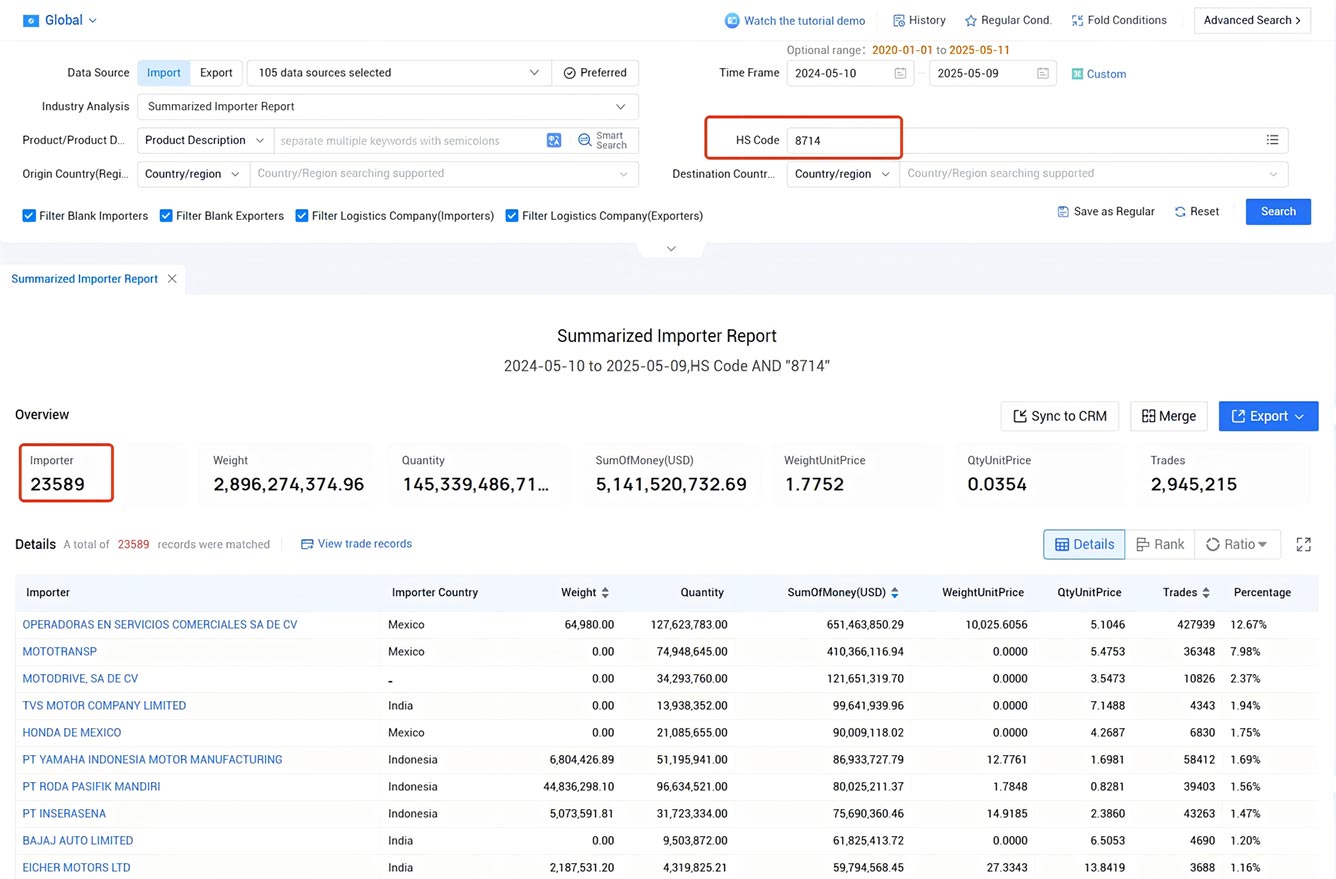
Through deep analysis, you can uncover key insights into importers' trade trends, HS codes, supply chains, suppliers, and countries of origin—empowering your business decisions with actionable data.
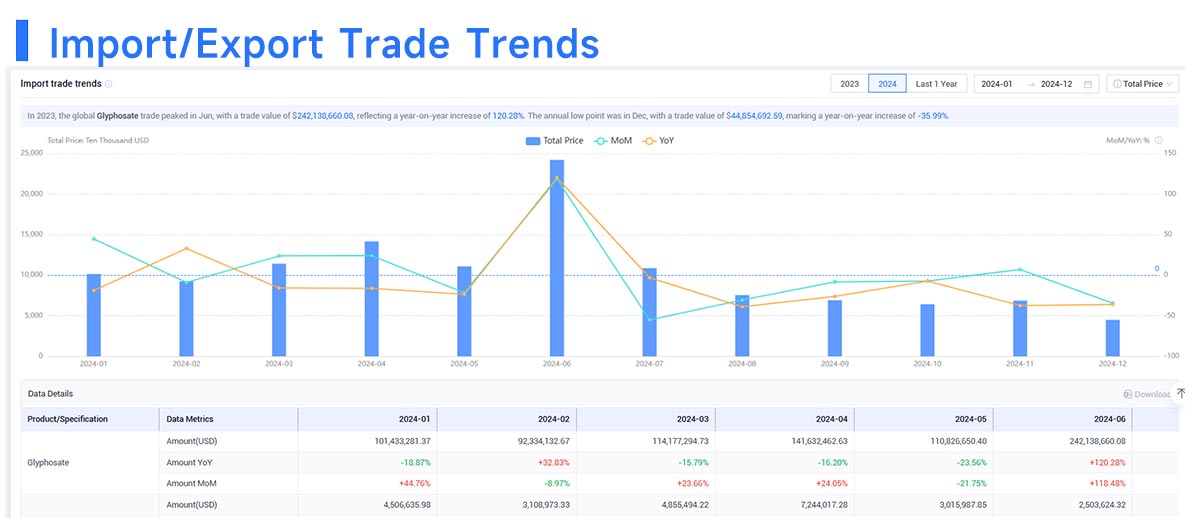
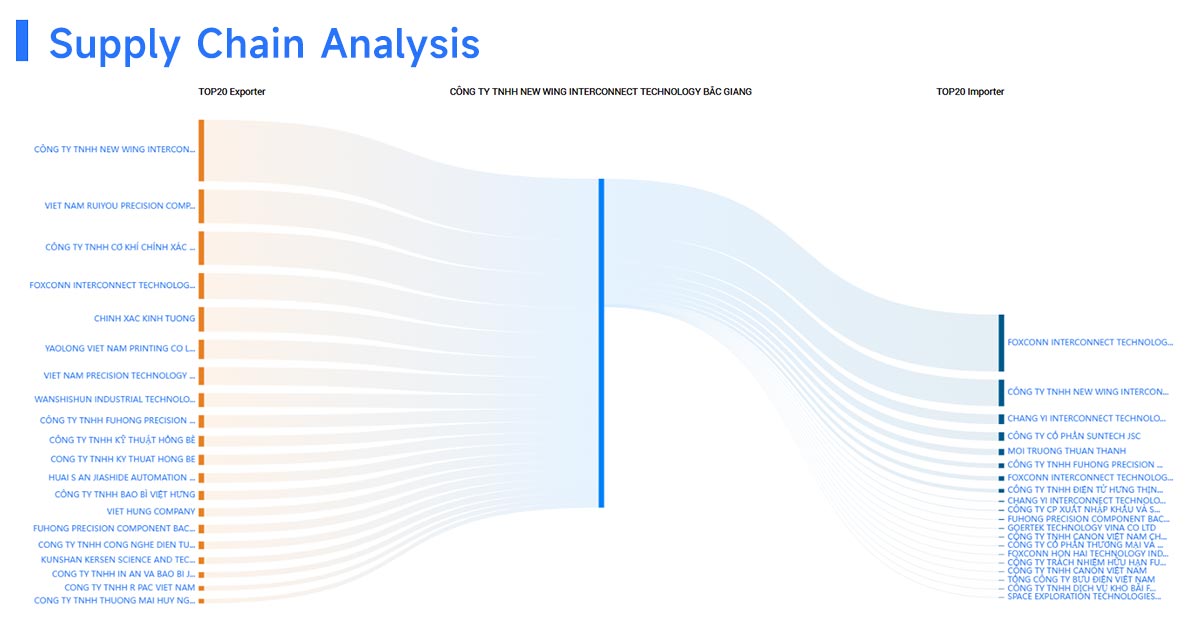
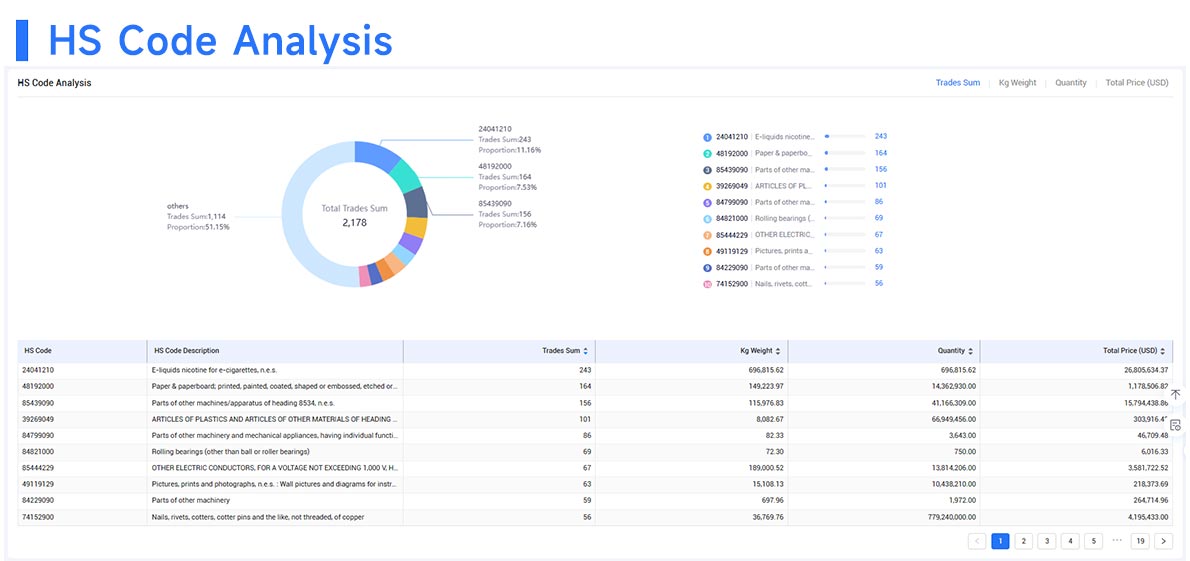
Tendata isn't just powerful in analytics—it also comes with a built-in contact database. With just a click, you can view detailed information on key decision-makers, such as purchasing managers and executives, including their email addresses, LinkedIn, and Facebook profiles. Even better, the platform connects directly to major global social media platforms like LinkedIn, making it easy for your business to establish direct connections with target prospects.
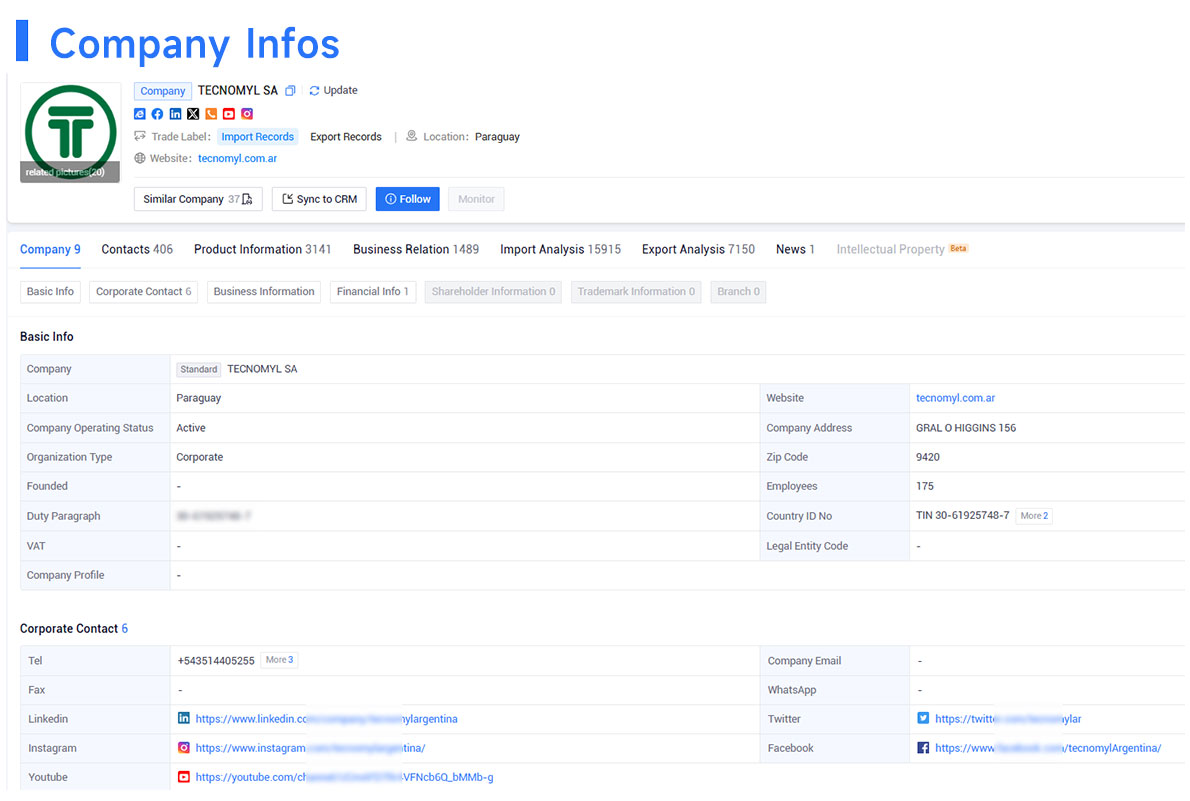
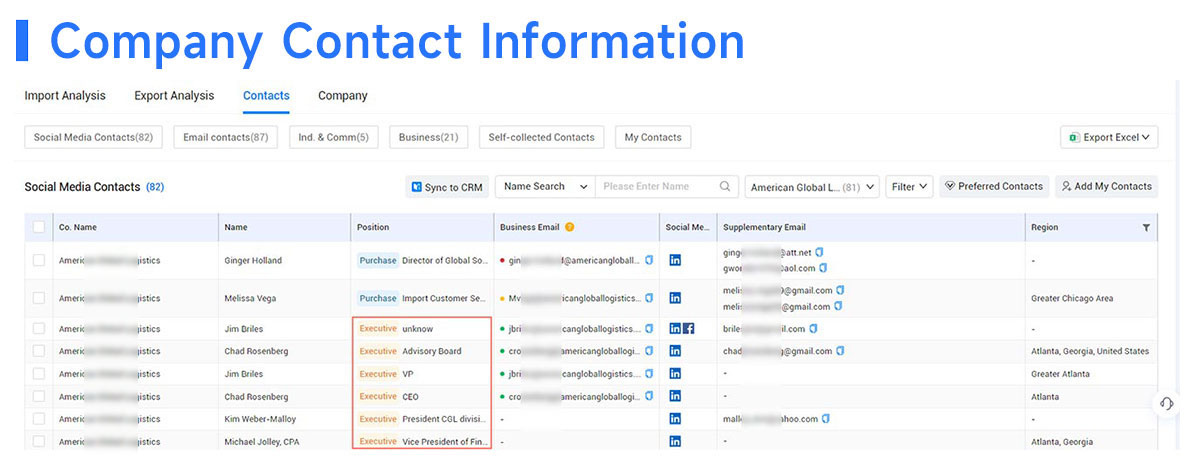
Category
Leave Message for Demo Request or Questions


 T-info
T-info T-discovery
T-discovery

 My
Tendata
My
Tendata Market Analysis
Market Analysis Customer
Development
Customer
Development Competitor
Monitoring
Competitor
Monitoring Customer Relationship
Customer Relationship





































































































































